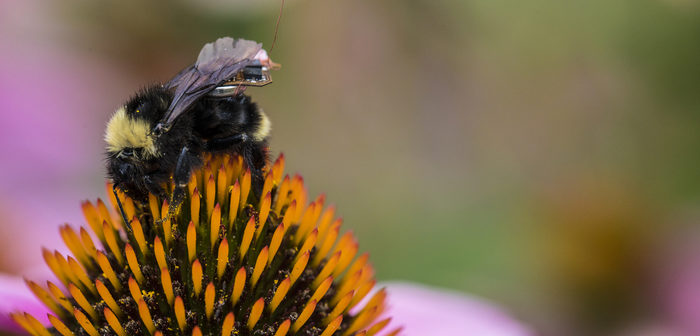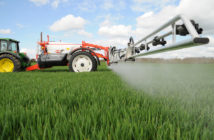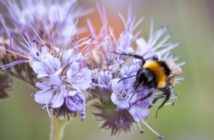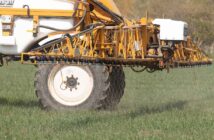Researchers at the University of Washington have created a sensor package that is small enough to ride aboard a bumblebee.
Farmers can already use drones to soar over huge fields and monitor temperature, humidity or crop health. But these machines need so much power to fly that they can’t get very far without needing a charge.
Now, engineers at the University of Washington have created a sensing system that is small enough to ride aboard a bumblebee. Because insects can fly on their own, the package requires only a tiny rechargeable battery that could last for seven hours of flight and then charge while the bees are in their hive at night. The research team will present its findings online Dec. 11 and in person at the ACM MobiCom 2019 conference.
“Drones can fly for maybe 10 or 20 minutes before they need to charge again, whereas our bees can collect data for hours,” said senior author Shyam Gollakota, an associate professor in the UW’s Paul G. Allen School of Computer Science & Engineering. “We showed for the first time that it’s possible to actually do all this computation and sensing using insects in lieu of drones.”




